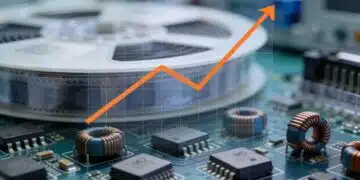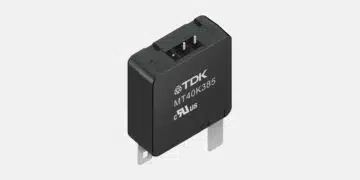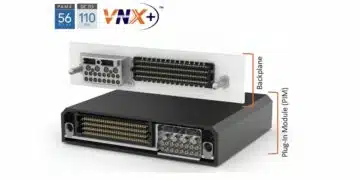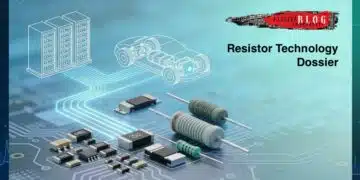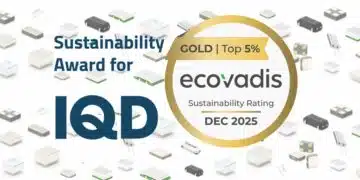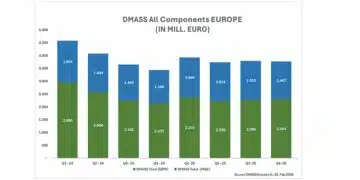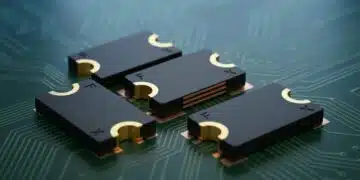TPC Technical Program Committee of the next 3rd PCNS Passive Components Networking Symposium scheduled for Sep 7-10th 2021 in Milano, Italy selected theme of the symposium: RELIABILITY & SUSTAINABILITY of PASSIVE COMPONENTS that will be elaborated in conference Workshop, Hot Topic Panel Discussion, Keynote and papers selection preferences. EPCI, the main PCNS organizer, questioned TPC members why they consider the theme so important for today’s passive electronic components and what shall be discussed within this topic in depth. The next interview #7 is with TPC member, Dr. Alexander Teverovsky (AT), engineering specialist working for Jacobs Technology Inc./GSFC (NASA) operations.
EPCI: What ideas, issues, concerns, directions has raised on your mind when TPC selected „Reliability & Sustainability of Passive Components“ as the 3rd PCNS theme ?
AT: For variety of reasons, the usage of commercial components in hi-rel systems is increasing and reliability issues with these parts are of prime importance, especially for space applications.
In the last few years this topic, and in particular applicability of automotive components, was discussed in multiple conferences. However, we are still far from getting any practical solutions, and more analysis and search for new approaches is necessary.
EPCI: What topic you would recommend for the Hot Panel Discussion and Why ?
AT: I think it would be interesting to talk about new approaches in reliability assessments of BME ceramic and polymer tantalum capacitors.
The existing qualification system employs test conditions that are used for military-grade capacitors and multiple efforts have been made to demonstrate that some COTS components can withstand the testing. However, if a few samples can passe military-level life test, does it mean that these parts are as good as military components and can operate reliably for a 20-year mission?
On the other hand, if a part fails mil-level life testing, does it mean it cannot be used for space? In other words, what does it mean to „qualify a capacitor for space“? Maybe instead of trying to qualify COTS capacitors for „space“, we should find an effective way to assure that a given batch of capacitors can operate at specific application conditions for the required time. I hope we’ll discuss these issues during the conference.
EPCI: You are working for Jacobs Technology Inc./GSFC (NASA). Can you comment what is Hot / Upcoming relevant to the PCNS theme ?
AT: NASA is conducting variety of studies on reliability issues with electronic components used for space applications. Passive components are an important part of these activities. Exchange of our findings with industry and academia is of benefits for everyone, thus platforms like PCNS presents and ideal opportunity to share and gain knowledge.
You might find useful information from our studies at https://ntrs.nasa.gov/
EPCI: How are you going to address this topic during PCNS ?
AT: I hope we’ll prepare a few papers and give a presentation for panel discussions.
EPCI: Thank you Alexander and lets hope in best that we can meet live at PCNS in Milano in September
Alexander Teverovsky can be reached at his ResearchGate profile
see more about PCNS on its website:
be active in passives ! join us and submit your paper abstract online:
About
PCNS Passive Components Networking Symposium is a bi-annual international symposium organized by EPCI European Passive Components Institute in co-operation with an European university. 3rd edition of the PCNS Passive Components Networking Days Symposium scheduled for September 7-10th, 2021 in Milano, Italy is hosted by Department of Chemistry, Materials and Chemical Engineering “Giulio Natta” and Department of Electronics, Information and Bioengineering of Politecnico di Milano. It is intended as a live event with speakers present with streaming options for virtual attendees. In worst case, the PCNS will move to virtual event; all registered attendees will get hard printed ISBN Proceedings (by mail post in virtual case).
Alexander Teverovsky, Ph.D.
Alexander Teverovsky received Ph.D in electrical engineering from Moscow University of Electronic Machine Building, Russia. Dr. Teverovsky jointed Goddard Space Flight Center Parts Analysis lab in 1994 as a senior failure analyst performing failure analysis, design and reliability evaluations of hybrids, microcircuits, and discrete active and passive components. Starting in 2000, he is working on evaluation of variety of new technologies and devices for space applications. Dr. Teverovsky is the author of more than 80 papers on failure mechanisms and reliability of electronic components. Recent research interests include failure mechanisms, reliability modeling, and qualification testing of new technology ceramic and tantalum capacitors.


